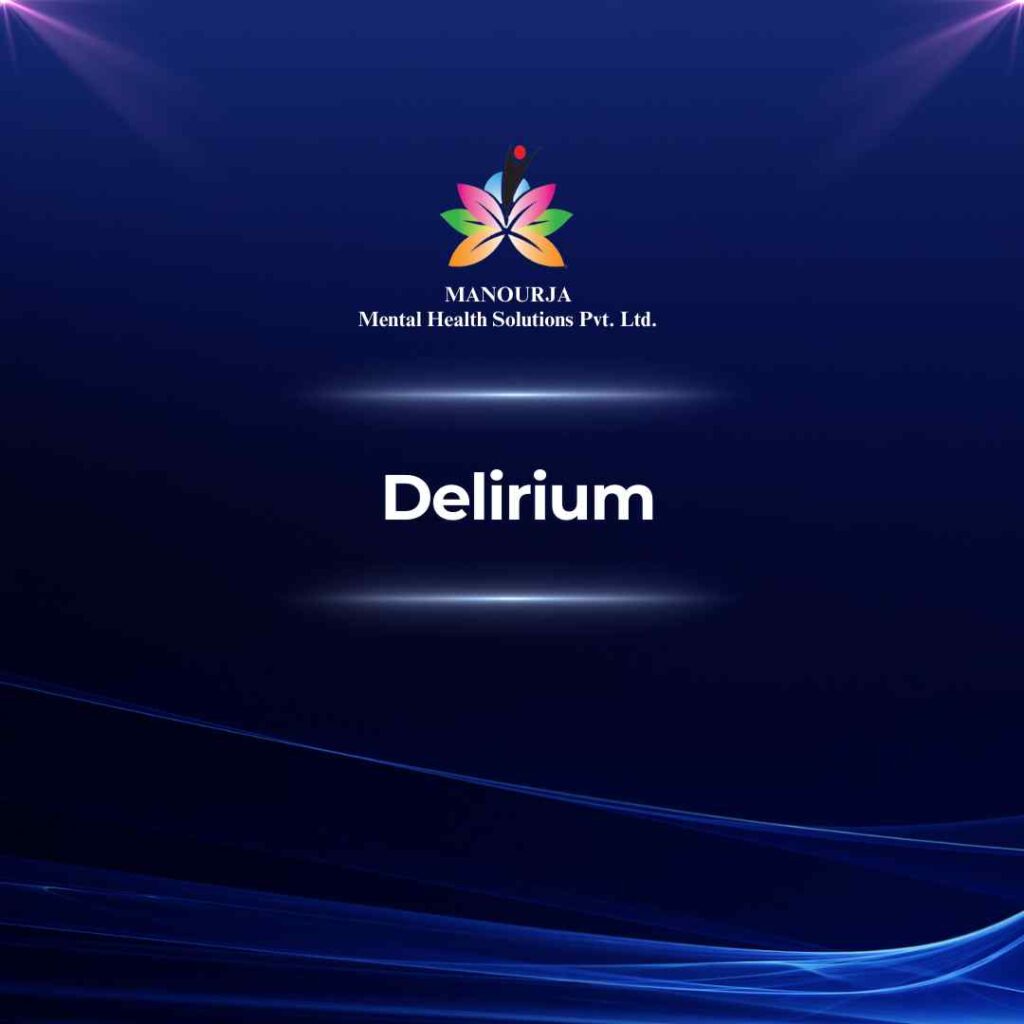Delirium

Delirium is a state of acute confusion and disturbance in cognitive function, often characterized by fluctuations in awareness, attention, perception, and memory. It typically develops rapidly over a short period and is commonly associated with underlying medical conditions, intoxication, medication side effects, or withdrawal from substances. Delirium can manifest as disorientation, hallucinations, agitation, incoherent speech, and impaired reasoning, making it challenging for affected individuals to process information or interact with their environment effectively.
Delirium as a Symptom of Mental Illness
Delirium itself is not considered a primary mental illness but rather a neuropsychiatric syndrome that can occur secondary to various medical or psychiatric conditions. While it shares some similarities with mental health disorders in terms of cognitive disturbances and behavioral changes, delirium is distinct in its acute onset and reversible nature when the underlying cause is addressed.
Mental Health Conditions Associated with Delirium
Substance-Induced Disorders
- Delirium can occur as a result of substance intoxication or withdrawal from alcohol, illicit drugs, or medications. Substance-induced delirium typically resolves once the effects of the substance wear off or with appropriate medical management.
- Individuals with dementia, particularly in advanced stages, may be prone to episodes of delirium, often triggered by factors such as infections, surgery, or changes in medication. Delirium in the context of dementia can exacerbate cognitive decline and increase the risk of complications.
- Acute stress reactions, including acute stress disorder or post-traumatic stress disorder (PTSD), can sometimes present with symptoms resembling delirium, such as confusion, disorientation, and hypervigilance, particularly in the aftermath of traumatic events.
Psychotic Disorders
- Severe psychotic episodes in disorders like schizophrenia or schizoaffective disorder may involve features of delirium, such as perceptual disturbances, disorganized thinking, and emotional dysregulation, though delirium in these cases is usually transient and resolves with treatment.
- Severe depressive episodes, particularly in older adults or those with comorbid medical conditions, can occasionally lead to symptoms of delirium, such as psychomotor agitation, cognitive slowing, and disturbances in sleep and appetite.
While delirium is not classified as a standalone mental illness, its presence often indicates an underlying medical or psychiatric condition requiring urgent evaluation and management. Treatment approaches may involve addressing the precipitating factors, supportive care, medication adjustments, and interventions aimed at managing symptoms and preventing complications associated with delirium. Collaboration between medical professionals, including psychiatrists, neurologists, and primary care providers, is essential for comprehensive assessment and treatment of individuals with delirium.
At MANOURJA, we believe in the transformative power of counseling. Our experienced therapists offer a safe and supportive space where you can explore your thoughts, emotions, and challenges. Through personalized counselling sessions, we’ll work together to develop coping strategies, build resilience, and achieve lasting positive change. Discover the path to a healthier, happier you with MANOURJA counselling services.
MANOURJA Rehabilitation Services
At MANOURJA, we’re dedicated to helping you in rebuild your life, after difficult times. Our rehabilitation services focus on understanding what you need to move forward, whether you’re recovering from addiction, trauma, or any psychological – social challenges. We create personalized plans, that are all about helping you, regain your strength and find hope again. With a caring team by your side, you’ll have the support to make real progress and take steps toward a brighter, healthier future.
